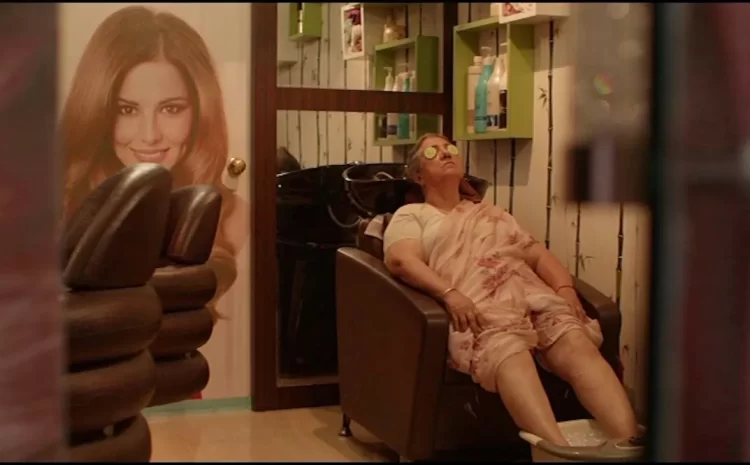IIHS Urban Lens Film Festival
The ninth edition of the festival was held from 16 to 19 February 2023 in collaboration with the Goethe-Institut / Max Mueller Bhavan and India Foundation for the Arts, with Champaca as the festival bookstore partner.
The festival explored questions around what makes a city and who it belongs to, as well as the ways in which the city can be both a place of freedom and opportunity, but also of exploitation. It examined how narratives of the city across time and geography resonate with each other, and how stories about the city represented in cinema shape the minutiae of our individual or collective lives and the cultural landscape.
The opening and closing films of the festival centered around themes that preoccupied the participants – COVID-19 and what it means to live in the age of the Anthropocene. Ariyippu (Declaration) explored the effect of the pandemic on a couple’s life in Delhi, while the Oscar-nominated All That Breathes, the closing film, delicately examined the relationship between humans and non-humans within the web of ecology they co-exist in.
Films such as Aise Hee, Ladies Only, Made in Bangladesh, and Raat, set in the cities of Allahabad, Mumbai, Dhaka, and the peri-urban contexts of Jharkhand, Uttar Pradesh, and Rajasthan, explored themes of loneliness, labor, and inhabiting public spaces through the perspectives of women.
Though differing in storytelling methods, Lorni - The Flaneur and Ïewduh both explored aspects of the city of Shillong. I.D., set in Mumbai, reflected on the concept of anonymity for a migrant worker in the city, while Happy Birthday examined ideas of love in the city of Bangalore. Iqraar-Naama, set in Amritsar, and Somewhere Near and Far, set in the Delhi-NCR region, explored the present and the past through memories of the partition of the Indian subcontinent.
The international section of the festival featured award-winning films like White Building (Cambodia), Kabul, City in the Wind (Afghanistan), El Gran Movimiento (Bolivia), Victoria (Germany), and Made in Bangladesh, each exploring different aspects of cities around the world.
The festival hosted a panel discussion titled Ear to the Ground: Collective Image-making, Embedded Stories on the practices of image-making, rooted in collectives and local contexts. This was in continuation with the festival’s commitment to understanding the work of film and media practitioners and creating new forms of embedded knowledge and theory.
In addition, festival attendees had the opportunity to experience two exhibitions – a video installation by Nabina Chakraborty titled Nuovo Metropolis, which was an interplay between Fritz Lang’s classic Metropolis and narratives of residents of Kidwai Nagar basti in Delhi, and a photography exhibition by Rama Aadhithan, Sudhanva Atri, and Jagdish Krishnaswamy called Crossing Thresholds, which explored the relationship between nature and the built environment in different cities.

















